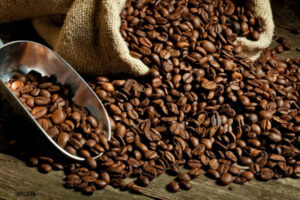
In 2024, coffee producer Galka PrJSC (Lviv) reduced its profit by 7.5% to UAH 2.7 million compared to 2023.
According to the decision of the shareholders’ meeting published in the information disclosure system of the National Securities and Stock Market Commission (NSSMC), it was decided to pay dividends in the amount of UAH 4,497,204, which is UAH 12.85 per ordinary registered share.
The Management Board was obliged to compile a list of persons entitled to receive dividends by April 23, 2025, and to pay dividends directly to shareholders within six months from the date of the general meeting’s decision to pay dividends by transferring them to shareholders’ bank accounts or, at their request, at the company’s cash desk.
“Pay the entire amount of dividends in full. To notify the persons entitled to receive dividends of the date, amount, procedure and term of their payment by posting a relevant notice on the company’s website,” the minutes of the general meeting read.
According to the Opendatabot service, in 2024, Galka slightly increased its revenue to UAH 5.274 million, which actually corresponds to the pre-war level of UAH 5.29 million in 2021. Debt obligations increased by 20.2% to UAH 504.2 thousand, while assets decreased by 6.6% to UAH 24.11 million.
Galka PrJSC was established in 1994 on the basis of a Lviv coffee factory that started its operations in 1932 as the Lviv Cooperative Factory of Coffee Additives “Suspilny Promyshl”. Since its inception, the company has specialized in the production of chicory and malt coffee “Luna”, as well as Prajin coffee substitutes. In 1971, the company installed Niro Atomizer equipment for the production of instant coffee, which Lviv Coffee Factory began exporting. The capacity of the Ukrainian-English manufacturer Galka is currently 120 thousand packs of coffee per day.
The major shareholders are Yaroslav Volynets (8.9%) and Lydia and Andriy Volynets (6.9% each), Natalia, Olga and Yuriy Dubovy (7.7% each), Roman and Volodymyr Pasternak (7.1% and 7.6%), Iryna Popovych (7.1%), and Galka Holding LLC (19.39%).
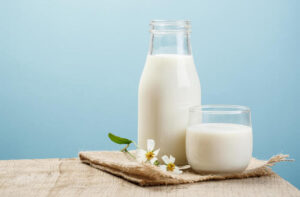
In January-February 2025, Ukraine produced 0.9 million tons of milk, which is 3.5% less than in the corresponding period of 2024, according to Infagro, an industry information and analytical agency.
In February, agricultural enterprises produced 1.7% more milk than in February 2024. Given that 2024 was a leap year, the annual growth in February was 5.3%, analysts said.
Experts emphasized that as of March 1, there were 1.15 million cows in Ukraine, which is 8.4% less than on the same date last year. Official figures for the number of cows in agricultural enterprises showed a negative annual trend with a slight decrease of 0.1% by March 1, 2024.
“In April, we can expect stabilization of the milk market due to the growth of overall demand, which means that the rate of decline in purchase prices will slow down, price revisions will become pointwise,” Infagro emphasized.
At the same time, in March 2025, the purchase price of raw milk in Ukraine continued to decline, with prices returning to approximately the level of September 2024. The March price correction was more severe than in February. Competition for raw materials has resumed due to the projected growth in promotional sales of dairy products in the domestic market and increased European demand for Ukrainian goods, especially butter.
Analysts noted that the supply of raw materials in the domestic market continues to grow. New production facilities and new projects in the dairy industry are being launched. Therefore, the pressure on the price of milk is still there.
The average cost of raw materials in March 2025 in agricultural enterprises was 16.6 UAH/kg excluding VAT, which is 5.1% lower than in February, but 15% higher than in March 2024; the cost of raw materials from the population was 10.5 UAH/kg excluding VAT, which is 4.1% lower than in February, but 14% higher than in March 2024.
The range of milk prices at the end of March was mainly from agricultural enterprises – 15.8-17.0 UAH/kg excluding VAT, and from households – 9.5-11.0 UAH/kg excluding VAT.
“The estimated margin of milk production continued to decline in March. The average estimated operating margin in March amounted to 15%, which is 7 points less than in February and 29 points lower than in March 2024,” Infagro summarized.

UAH 56.48 billion was the total revenue of the best IT companies in the Opendatabot 2025 Index. The top three leaders belong to American companies, with Globalogic Ukraine taking the first place. Also, 2 companies left the top 10, one of which was included in the Index for 2 years. 7 out of 10 companies in the Index are in the Diia City register
GlobalLogic Ukraine , owned by the American Bonus Technology INC, debuted on the first place in terms of revenue. Revenue for the year changed slightly to UAH 11.66 billion (+2%), while profit decreased by 28% to UAH 653 million. Despite the fact that the company has been in the Index for 3 years, it took the leading position for the first time.
“We are honored to continue and develop our business in Ukraine, as we understand the high price of such an opportunity. GlobalLogic in Ukraine unites thousands of talented engineers. It is their intelligence, education, diligence and high efficiency that helps the company grow in Ukraine and pay taxes to our country’s economy. Our engineering teams in Ukraine create high-tech solutions in the areas of artificial intelligence, automotive, medical, semiconductors, and more. These developments are highly valued by our customers in the US and Europe,” comments Anna Shcherbakova, COO of GlobalLogic Ukraine.
The remaining top 3 positions were shared by two companies of Epam, founded by Arkadiy Dobkin. They account for a third of the top ten earnings. Epam Systems , which previously topped the Index for 2 years in a row, went down a notch with revenue of UAH 11.35 billion. This is 10% less than in 2023. At the same time, its profit increased by 27% to UAH 1.67 billion.
At the same time, Epam Digital ‘s revenues and profits are growing year on year. With revenue of UAH 7.5 billion (+25%) and profit of UAH 838 million (+11%), the company ranked third in the Index. It is worth noting that this legal entity was founded only in December 2021.
“EPAM Ukraine has been a leader in the IT industry for several years in terms of key indicators: the number of specialists, revenue, and the amount of tax payments to the country’s budget. Last year, we paid over UAH 1 billion in taxes, which confirms our position as one of the largest taxpayers in the Ukrainian IT sector. Since the start of the full-scale invasion, the company has committed $100 million to support its Ukrainian team, their families, Ukrainian defenders and the country’s critical needs,” comments Stepan Mitish, Vice President, Head of EPAM Ukraine
For the second year in a row, Luxoft Solutions, a subsidiary of Swiss Luxoft founded by Dmytro Loshchynin, remains fourth in the Index. Its revenue fell by 7% to UAH 5.45 billion, while profit decreased by 12% to UAH 263.6 million.
The Institute of Information Technologies “Intellias” took the 5th place with a revenue of UAH 4.06 billion (-6%). At the same time, the company’s profit increased by 18% to UAH 300.7 million. The business is owned by ITE Limited, whose ultimate owners are Vitaliy Sedler and Mikhail Puzrakov.
SoftServe Technologies, founded by Lviv residents Taras Kitsmey and Yaroslav Lyubynets, moved up two places last year: 6th place. The company’s revenue grew 1.6 times over the year to UAH 3.83 billion, while profit remained the same at UAH 210 million.
Thefintech band, owned by Monobank founders Oleg Gorokhovsky and Mikhail Rogalsky, lost two positions in the Best Index this year. Due to a significant decrease in revenue – by one and a half times – the company was ranked seventh: UAH 3.71 billion. Profits decreased even more significantly: by 2.7 times to UAH 1.15 billion.
Infopulse Ukraine, founded by Oleksiy Sigovyi and Andriy Anisimov, took the ninth place. It is now owned by the Swedish company NUK HOLDING AB. The company’s revenue decreased by 5% to UAH 3.06 billion, while profit decreased by 14% to UAH 332.7 million.
At the same time, this year’s iteration of the Opendatabot Index also includes newcomers that debuted with stunning results. With revenues of UAH 3.22 billion and a record profit of UAH 2.4 billion among the top 10 companies, Highload Solutions (formerly Favbet Tech) by Dmitry Matyukha appeared in the Index. The company, registered in January 2022, accounts for a third of the total profit of the ranked companies.
Another newcomer to the Index rounds out the top ten is the young company Squad Ukraine (SQUAD), established in August 2022. The business is owned by the Cypriot company Squad IT Limited, owned by Ukrainians Lyubomyr Vasyliev and Yuriy Katkov. Last year, Squad’s revenue grew 2.8 times year-on-year to UAH 2.6 billion, and its profit grew 3.4 times to UAH 80.6 million.
It is worth noting that 7 of the top companies chose the Diia City legal regime, except for Epam Systems, Luxoft Solutions, and the Institute of Information Technologies “Intellias”. This means that these companies do not enjoy special tax benefits, a simplified administrative process, and other tools for the development of the IT sector from the state.
At the same time, this year the IT Companies Index was dropped:
https://opendatabot.ua/analytics/index-it-2025
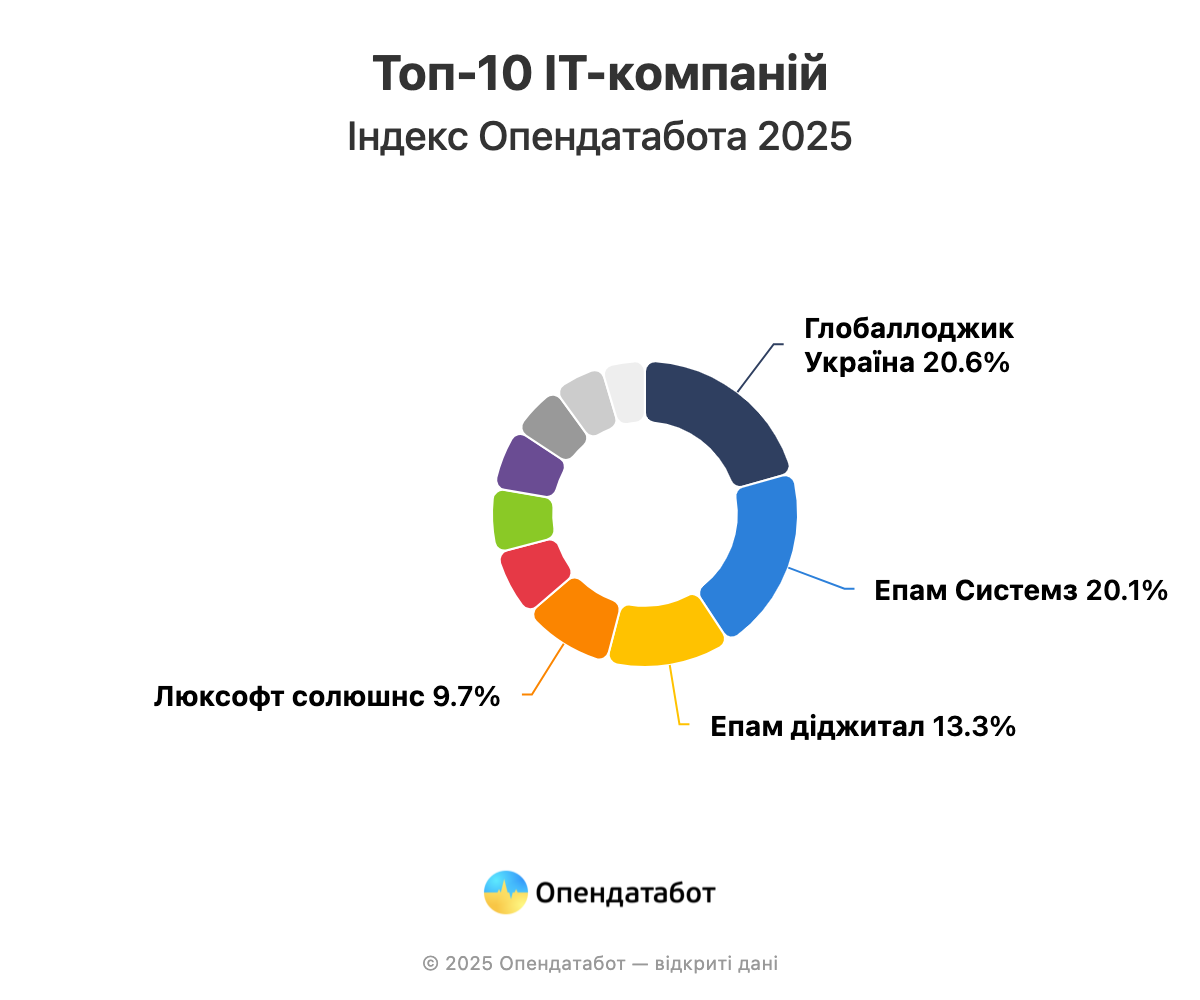
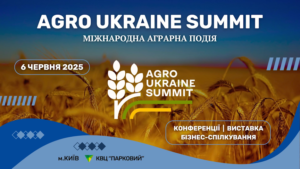
On June 6, 2025, Agro Ukraine Summit will take place, a major international agricultural event that will bring together all key stakeholders in Ukraine’s agricultural and food sectors.
The summit aims to identify current challenges and opportunities for the development of the agricultural sector, discuss ways of integration into the EU, and formulate a vision of Ukraine’s agri-food future.
Venue: 16a Parkova Road, Kyiv, CEC “Parkovy”
For whom the event is intended: crop and livestock producers, elevators, agro-processors, logisticians, traders and all companies providing equipment, technologies and services to the relevant industries.
Number of participants: 2500+
The Summit will include:
6 conferences:
– “Agro Ukraine Summit” conference
– Conference “AgriTech Conference”
– Conference “Futurology or the future of grain storage”
– Conference “Effective livestock and poultry farming”
– Conference “Processing trends in crop production”
– Conference “Solar Agro Conference”
Presentations by industry experts with cases of effective agribusiness, government officials and experts;
Exhibition of technological solutions and equipment from leading manufacturers (100+ stands);
Live music, lounge area;
Coffee breaks, receptions.
For more information, please visit the official website: https://agro-ukraine-summit.com
For partnership and participation in the exhibition, please contact the organizers:
+38 096 899 4272 | +38 067 243 3803 | proagro-inform@ukr.net
Interfax-Ukraine is the official media partner of the event.
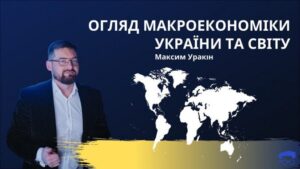
The article presents key macroeconomic indicators of Ukraine and the world economy for January-December 2024. The analysis is based on official data from the State Statistics Service of Ukraine, the National Bank of Ukraine, the IMF, the World Bank, and the United Nations, on the basis of which Maksim Urakin, PhD in Economics, founder of the Experts Club information and analytical center, presented an analysis of macroeconomic trends in Ukraine and the world. Such key aspects as the dynamics of gross domestic product (GDP), inflation, unemployment, foreign trade and public debt of Ukraine, as well as global macroeconomic trends were considered.
Ukraine’s macroeconomic performance
Ukraine’s economy showed moderate growth in 2024 despite ongoing challenges related to war and external economic factors. According to the State Statistics Service of Ukraine, the country’s real GDP grew by 2.9% year-on-year . Nominal GDP amounted to UAH 7.66 trillion, with a deflator at 12.3%.
“Despite the challenges associated with the war and unstable geopolitical situation, Ukraine has managed to hold macroeconomic stability. GDP growth of 2.9% is a signal of economic recovery and investor confidence,” Maksim Urakin noted.
Inflation remains a significant problem for the economy. According to the State Statistics Service of Ukraine, annual inflation reached 12% in December 2024, accelerating from 11.2% in November . Consumer prices rose by 1.4% in December compared to November.
“The rise in inflation is a worrying signal. It is the result not only of internal factors, but also of external pressures: rising import prices, energy risks, as well as exchange rate fluctuations. The policy of the National Bank will play a crucial role in stabilizing the situation,” the expert explained.
The negative balance of foreign trade in goods in January-November 2024 increased by 3.6% compared to the same period of 2023, reaching $25.239 billion . Exports rose 16.5% to $38.423 billion and imports rose 11% to $63.662 billion.
“The increase in the negative trade balance suggests that imports are outpacing exports. Ukraine should focus on expanding its export potential and supporting strategic industries: agro-industrial complex, IT and machine building,” Urakin emphasized.
Ukraine’s international reserves reached $43.788 billion as of January 1, 2025, having increased by 9.7% in December.
“This is a positive signal. Reserves are growing due to receipts from international partners. This ensures macro-financial stability and stability of the hryvnia,” the expert said.
Global economy
According to IMF forecasts, global economic growth in 2024 amounted to 3.2% . However, geopolitical instability, trade wars and slowing growth in key economies continue to put pressure on the outlook.
“The global economy is recovering but remains vulnerable. Geopolitical risks, high interest rates and lower consumer demand in developed countries are the main factors of instability,” said Urakin.
The U.S. economy showed stable growth. According to the US Bureau of Economic Analysis, the country’s GDP grew by 2.4% year-on-year in the fourth quarter of 2024, helped by a rise in consumer spending
“Strong domestic demand is a driver of the U.S. economy. However, rising debt burdens and expensive credit could slow the momentum in 2025,” the economist said.
The Eurozone economy showed weak growth rates. In the fourth quarter of 2024, Eurozone GDP grew by 0.1% quarter-on-quarter .
India continues to show stable growth. According to the Indian government, the country’s GDP grew by 8.2% in 2024.
China’s economy grew 4.6% in the third quarter of 2024, but the forecast for the year was lowered to 4.8% due to weak domestic demand and difficulties in the real estate sector.
“China needs to restart domestic consumption. Without demand stimulus, growth may slow down even more,” the expert emphasized.
Conclusion
Economic indicators of Ukraine and the world for 2024 show a mixed picture. GDP growth and positive signals in global markets are combined with inflation risks and foreign trade imbalances. The global economy is also under pressure from multiple uncertainties.
“For Ukraine, the key challenges remain structural reforms, increasing exports, modernizing infrastructure and actively attracting investment. This is the key to sustainable economic growth in 2025 and beyond,” summarized Maksim Urakin.

Serbia has signed a €50 million contract with Eviden, a member of the Atos group, to develop a supercomputer and artificial intelligence (AI) technologies. The move is aimed at strengthening the country’s position in high-performance computing and AI.
The Serbian Ministry of Science, Technological Development and Innovation has signed an agreement with Eviden, part of the Atos group, worth 50 million euros. The purpose of the contract is to develop a supercomputer and artificial intelligence (AI) technologies that should strengthen Serbia’s position in the field of high-performance computing and AI.
According to the ministry, the project will enable Serbia to become a regional leader in digital technologies and provide opportunities for research and innovation. The supercomputer is expected to be used in various fields, including medicine, energy, and environmental protection.
Global investment in supercomputers
The world’s largest countries are actively investing in the development of supercomputers and related technologies.
China: In 2025, China plans to allocate about 398.12 billion yuan (approximately 55 billion US dollars) for research and development, in particular in the field of semiconductors, artificial intelligence and quantum computing.
THE UNITED STATES: In 2024, the US Department of Energy announced a budget of $425 million for the construction of two new supercomputers – Sierra and Summit. These systems are intended for scientific research and simulations, including nuclear testing.
Source: https://t.me/relocationrs/774